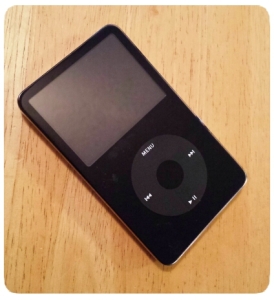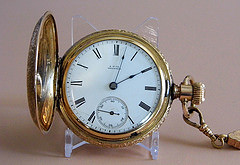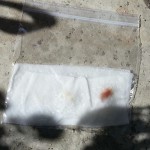
Social media has drastically changed the online aspect of Comic-Con. So much is up instantly that you can follow the event live without setting foot in San Diego. But for those of us who are on-site, there’s a trade-off between being part of the conversation and part of the convention.
Because we can post in real time, people want to follow in real time too, and lose interest quickly afterward. No matter how interesting I think my follow-up articles might be, none of them are read anywhere near as much as the half-assed pieces that go up during or right after the con. Even interest in photos drops off steeply as soon as the event is done:

But it takes time to write and edit, to curate, crop and adjust, and (dare I say it) to promote — and if it’s not your job, it comes at the expense of other things you could do at the con.
There’s Far Too Much To Take In Here
I’ve been posting my con experiences and photos for over a decade now. At first I’d just post when I had time. Once I had a smartphone, Twitter, and a second blog at Speed Force, I was live-tweeting and live-blogging everything.
Then in 2011, my wife and I left our then-infant son with relatives and spent a single day immersed in the pop culture madness. It gave us a new perspective:
- Comic-Con is gigantic.
- Your time at Comic-Con is limited.
- Make the most of it!
I changed the way I approached the convention. No more liveblogging; other people are doing that for their job. No presentations that will just be online by the end of the day anyway. No three-hour lines. I wanted the experience I could only get by being there.
I also cut my social media activity to a minimum:
- Instagram when I had a minute or two of downtime, set to auto-share pictures out to Facebook, Tumblr, etc.
- Twitter rarely, again when I had a little downtime. No more stopping in the hall to post a comment. This year I didn’t even check for conversations (which, it turns out, I should have).
Sure, I’m a little disappointed that my SDCC 2014 writeup hasn’t been read by very many people, but it’s partly to help me remember this year’s con when I look back at it later. Our photo album at least got some attention. But you know what? If I’d taken the time to write about it during the con, whether live or nightly, I wouldn’t have had as much to write about, and I wouldn’t have enjoyed it as much. I think that’s a good trade-off.
P.S. Apologies for the clickbait headline. It seemed appropriate for the subject matter.

 As I
As I 







